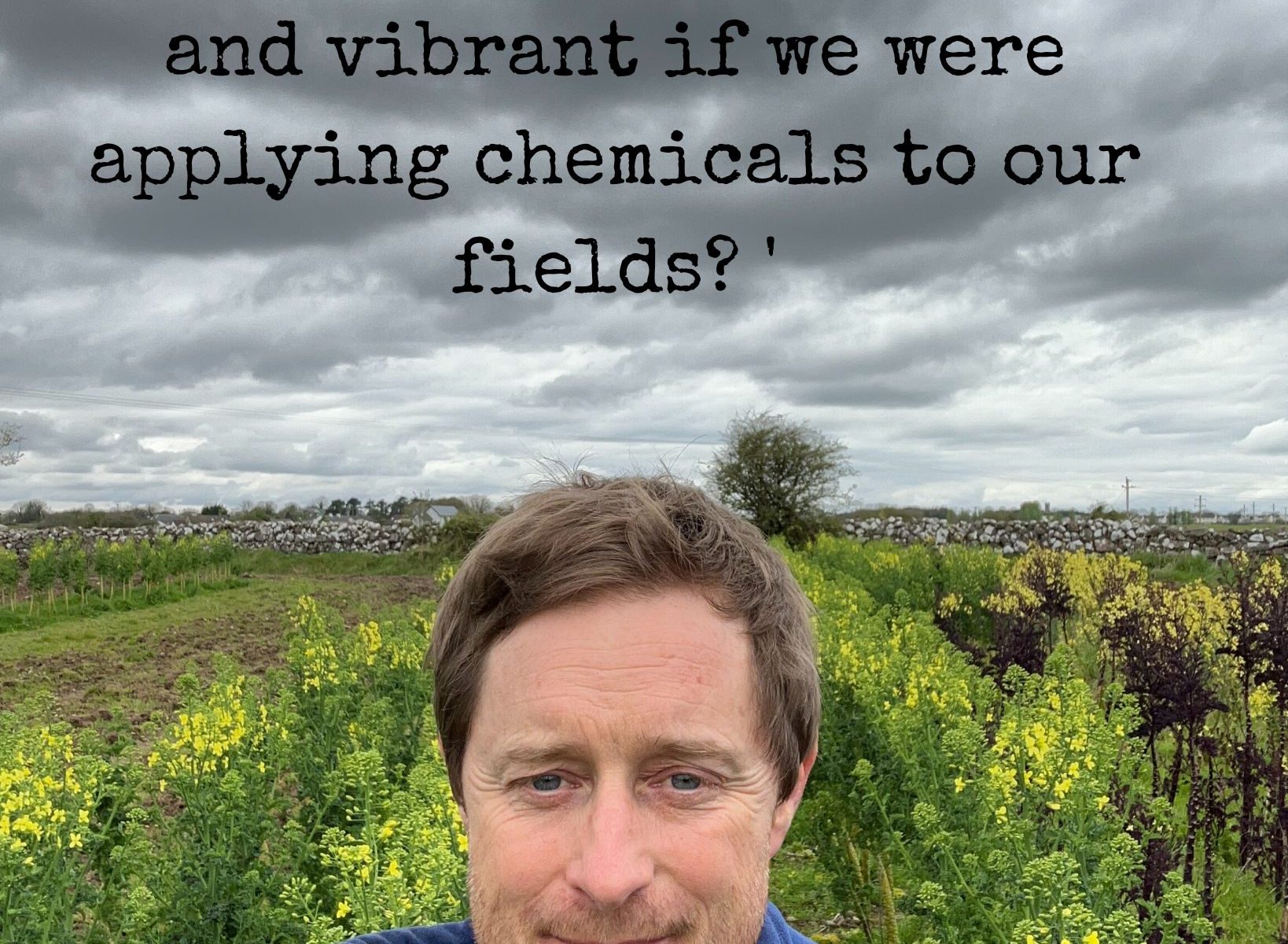870 possible chemicals. This is the number of potential, pesticides, herbicides, insecticides, fungicides and bactericides a recent sample of our kale was tested for.
We had our organic inspection a few weeks back and this is a routine test that is carried out on a random crop grown on our farm by our organic certifying body every year. The kale came back perfect, no chemicals present as expected. But I can only surmise that they test for 870 different types of chemical products because these are the chemicals that could be used at varying points in the conventional food system.
Many moons ago I use to listen to a song by a band called “Alice in Chains” called “Junkhead”, (not a song for the faint hearted!). It popped into my head again when we got these test results back, there are some striking similarities between the song’s lyrics “What’s your drug of choice?” when it comes to the repertoire of chemicals a conventional producer can choose from: “what’s your chemical of choice?”. There is a chemical for every problem and even for problems that have not yet occurred.
Here in Ireland, there is relatively high accountability for our conventional food producers. There has over the last 10 years been some good news as the overall pesticide usage has declined by 16% which is heading in the right direction. But a word of caution here this still equates to over 3 million kg of chemicals applied to our food and land.
But with much of our food in this country being imported and as we don’t have the same visibility on what controls are implements in foreign parts, (over 85% of all fruit and vegetables are imported) then choosing organic becomes even more important.
Organic systems are not perfect, but they do offer an alternative, one that keeps chemicals off our food, and in doing so also helps protect biodiversity. It does sometimes feel ironic that it is the organic producer that must prove their credentials, go through the extra paperwork, and submit samples to prove that we are not doing anything underhand.
The authorities set limits on the levels of chemicals allowed on our food, they are supposedly designed to help protect you and I as consumers. These limits are referred to as MRLs or maximum residue limits. But as I have talked about before and particularly in relation to Glyphosate; sometimes these limits can vary erratically from one crop to another or from country to country. The MRL for glyphosate increased 300-fold between 1993 and 2015 in the US (Is it safer to consume more of this chemical today than it was 20 years ago? I don’t think so!) to allow it would seem for the increased application of this herbicide on GMO soya and corn. This not strike me as having the best interests of the consumer at heart.
Chemicals are critical to our very survival on this planet, and when I talk about “chemicals” here I mean synthetic or man-made chemicals. They help us treat disease; they make possible all the amazing technologies we rely on for our modern-day way of life. But, and this is a big one, I do not believe they belong in or on our food.
Maybe “our drug of choice” should be fresh healthy clean food!
You are the lifeblood of our organic farm and business.
Thank you.
Kenneth
PS last week we opened our Christmas shop, we will be delivering as normal in the week before Christmas and now you can book your delivery and place your order for delivery for Christmas week. Check it out now here.

